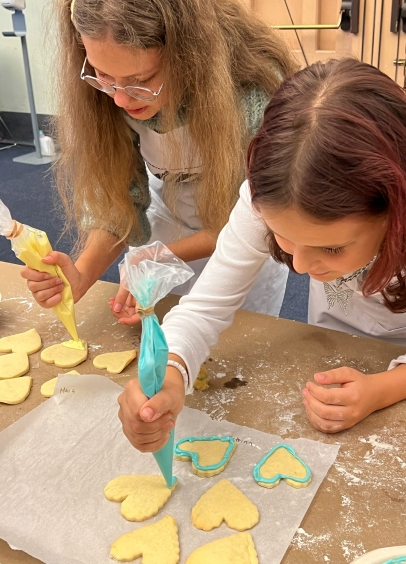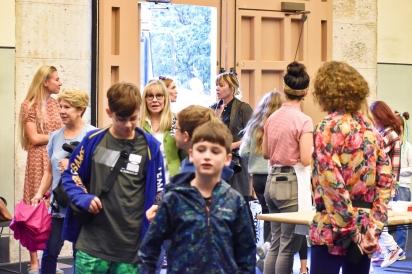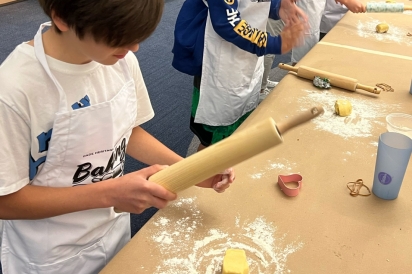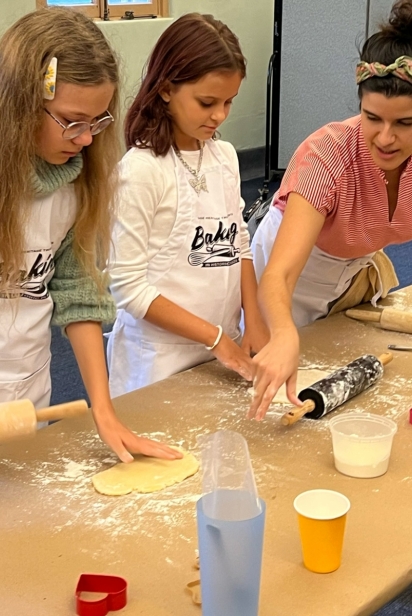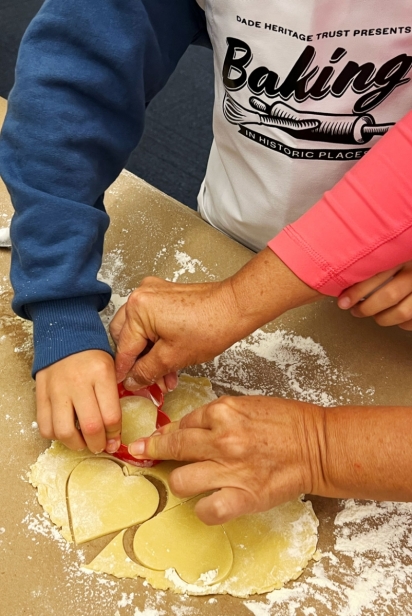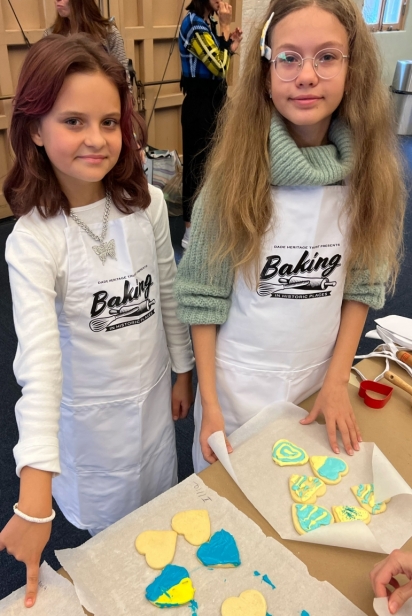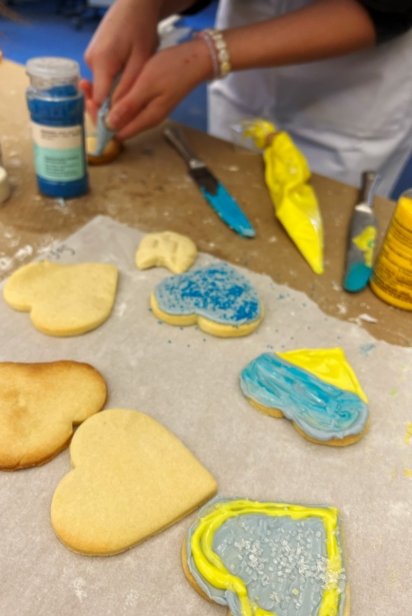Valentine’s Cookies Bring Smiles to Ukrainian Children
It was a rainy Saturday morning, but that didn’t matter to the children charging out of a school bus into the Vizcaya Village Garage, where they were greeted by friendly faces and the buttery fragrance of freshly baked sugar cookies. The kids, between 6 and 14, ate a quick breakfast of juices, bananas, tangerines and granola bars, horsed around with rolling pins, and donned aprons to await a lesson on cookie baking from instructor Lucia Meneses.
All were there for a special edition of Dade Heritage Trust’s Baking in Historic Places, a series of hands-on baking classes at noteworthy venues in Miami-Dade. Unlike the typical participants – mostly female, aspiring home bakers interested in exploring local venues – this group of young people were new arrivals to South Florida. They’re among the 85,000 Ukrainians who have arrived in the U.S. since April, seeking refuge from their war-ravaged country. Seeds of Hope, a student-run initiative of the School of Education, Leadership and Human Development at Barry University, worked with Dade Heritage Trust and Vizcaya to connect the children with American culture through food in a fun, immersive experience.
“These kids have had to escape war and flee places like Mariupol,” says Ekaterina Elagina, Seeds of Hope program director. “My goal, and Barry University’s goal, is to give these children an opportunity to transform stress into resilience, provide social and emotional support, and show positive things in their new life in South Florida. We hope to give them inner strengths.” Preparing food, cooking and baking, she says, “create a sense of home.”
The sugar cookie project got underway in a makeshift kitchen in the historic garage, part of agricultural industrialist James Deering’s Vizcaya Village. In front of each cookie station were fist-size gobs of sugar cookie dough, enough to make four cookies; red heart-shaped cookie cutters; and frosting bags ready to be filled. Baker-in-chief Meneses instructed the kids how to prepare the dough by first gently banging on it with the rolling pin to flatten it a bit, then rolling it out to a quarter-inch thickness. Accompanying parents and adults were on hand to keep everyone in line and translate if necessary.
The rolled-out hearts were placed on parchment labeled with each child’s name and baked until lightly colored. While they cooled, Christine Rupp, executive director of Dade Heritage Trust, whipped egg whites, powdered sugar and vanilla into a glossy fluff and scooped it into bowls ready for food coloring. Bright blue and yellow, the colors of the Ukrainian flag, were popular choices. The children filled their decorating bags with icing, piped it onto their cookies and set them aside to dry, while noisy chatter and happy mugging for cellphone pictures resumed. The cookies were packed up to take back and share with loved ones.
From her perch overlooking the activities, Rebecca Peterson, Vizcaya’s community programs manager, noted that Vizcaya historically served as a place of respite. “Now, as a public museum, this is one of the many ways we aim to serve our community, by being a safe and welcoming place where people can come to enjoy the arts, nature and local history. This partnership is a beautiful blend of all these elements.”
Dade Heritage Trust’s Rupp hopes this event can serve as an example to other nonprofits looking for ways to help these children develop a better understanding of their new South Florida home. “It is a privilege to spend time with these children and provide joy and a sense of community any way we can,” she says.
And never underestimate the power of homemade heart-shaped cookies to bring smiles to anyone.
Find out more information about the Seeds of Hope program for displaced children from Ukraine or email Ekaterina Elagina at ekaterina.elagina@mymail.barry.edu


